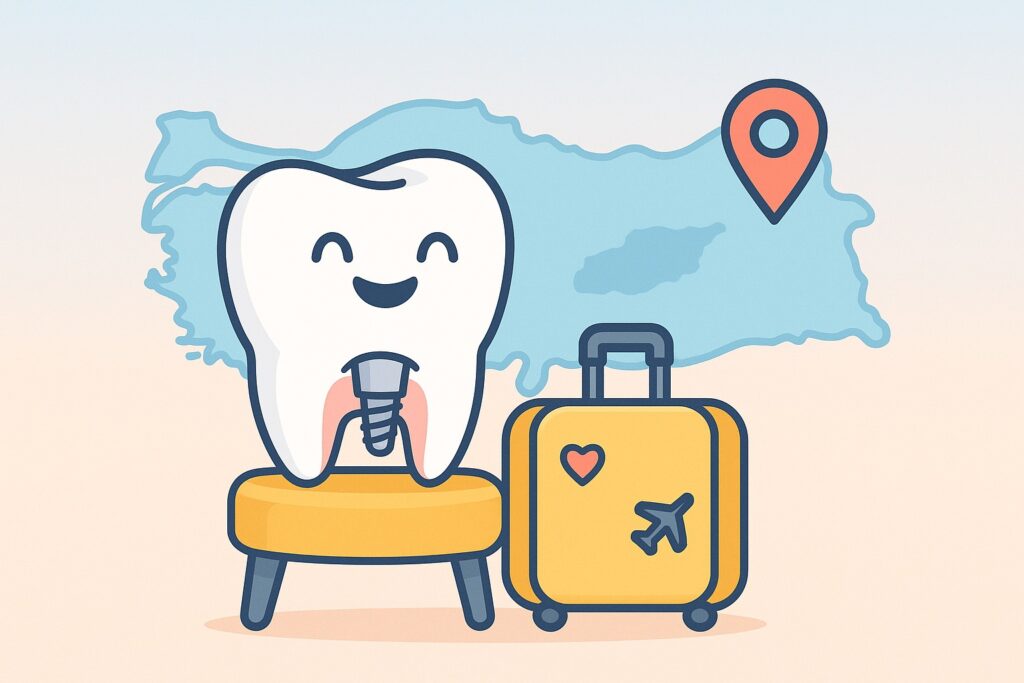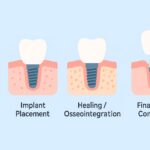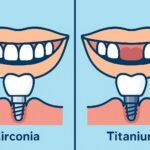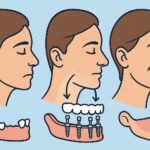Getting dental implants in the U.S. can be expensive, often costing thousands of dollars per tooth. For many Americans, this high price has pushed them to consider dental tourism — and Turkey has quickly become one of the most popular destinations. With its modern clinics, skilled dentists, and significantly lower prices, Turkey promises high-quality care at a fraction of the cost. But the question remains: is it truly safe?
The idea of traveling overseas for a surgical procedure raises valid concerns — from the qualifications of dentists to clinic hygiene, to what happens if something goes wrong after returning home. This guide breaks down the key safety factors for Americans considering dental implants in Turkey and how to make an informed decision.
Why Americans Choose Turkey for Dental Implants
Turkey has become a top dental tourism destination for U.S. patients, largely due to three core reasons: affordability, accessibility, and reputation in cosmetic dentistry.
1. Cost Advantage
In the United States, a single dental implant can cost between $3,000 to $6,000 or more. In Turkey, the same procedure typically ranges from $600 to $1,000 — even at top-tier clinics using globally recognized implant brands. These savings are significant, even after factoring in flights and accommodation.
2. Short Waiting Times
Unlike in the U.S., where long wait times and multiple insurance approvals can delay treatment, Turkish clinics often offer appointments within days. This appeals to Americans who want fast treatment without navigating complex insurance systems.
3. Strong Reputation in Cosmetic Dentistry
Many Turkish clinics have invested heavily in advanced dental technology and digital smile design systems. Dentists are often trained internationally and cater specifically to medical tourists, offering English-speaking staff and personalized care packages. Their focus on aesthetics and precision makes Turkey especially popular for implant and veneer procedures.
Safety Standards and Regulations in Turkish Dental Clinics
When it comes to safety, Turkey’s private dental sector operates under strict national and international guidelines — especially in clinics that cater to foreign patients. However, the level of safety largely depends on choosing the right facility.
1. Licensing and Accreditation
Dentists in Turkey must complete a 5-year dental degree and are licensed by the Turkish Ministry of Health. Many leading clinics are also accredited by international healthcare quality organizations, such as ISO or JCI (Joint Commission International), ensuring they meet global standards.
2. Hygiene and Sterilization Protocols
High-quality clinics in Turkey follow European sterilization protocols. Autoclaves, disposable tools, and strict sanitation practices are common in modern facilities. Patients should verify that the clinic meets EU hygiene standards and ask for sterilization certifications if uncertain.
3. Use of FDA-Approved and CE-Certified Materials
Top Turkish clinics use dental implant brands approved by the U.S. FDA and CE-certified for Europe. Brands like Straumann, Nobel Biocare, and Astra Tech are commonly used — the same ones found in American clinics.
While the safety standards can be excellent, it’s crucial to verify the clinic’s credentials, certifications, and dentist qualifications before committing to treatment.
Risks and How to Minimize Them
While many Americans have successful dental implant procedures in Turkey, there are real risks involved — especially when patients don’t properly research clinics or rush into treatment.
1. Potential Risks
- Improper Placement: Poor implant positioning can lead to bone loss, nerve damage, or implant failure.
- Infection: Clinics with inadequate sterilization protocols increase the risk of post-op infections.
- Lack of Aftercare: Once patients return to the U.S., follow-up can be difficult or expensive if complications arise.
- Communication Issues: Misunderstandings about treatment plans can occur if staff aren’t fluent in English.
2. How to Reduce These Risks
- Choose Accredited Clinics: Look for clinics certified by international health bodies (e.g., JCI, ISO).
- Verify Dentist Qualifications: Ensure the dentist has verifiable education and implantology training, ideally with international experience.
- Check Reviews from U.S. Patients: Patient testimonials on trusted platforms (like Google, Trustpilot, or medical tourism forums) can offer real insights.
- Get a Full Treatment Plan in Advance: A reputable clinic will provide a clear breakdown of costs, materials, procedures, and recovery expectations.
- Consider Follow-Up Options: Ask the clinic how they handle post-treatment issues once you’re back in the U.S.
Doing your due diligence is key. Safe dental care is available in Turkey, but only if you avoid cut-rate providers that sacrifice quality for price.
Comparing U.S. vs. Turkey: Dental Implant Quality and Aftercare
A common concern among Americans is whether the quality of dental implants in Turkey matches what they’d receive in the U.S. The answer: it depends on the clinic — but many of Turkey’s top providers match or even exceed U.S. standards.
1. Technology and Implant Brands
Leading clinics in Turkey use the same implant brands found in U.S. practices, such as Straumann, Nobel Biocare, and Zimmer. Advanced diagnostic tools like 3D CT scans, digital impressions, and guided implant surgery are standard in high-end Turkish clinics. However, lower-cost providers may use generic or locally manufactured implants, so it’s critical to ask about the brand and origin before proceeding.
2. Skill and Techniques
Many Turkish dentists receive additional training abroad and stay updated on international surgical techniques. In high-quality clinics, procedures follow the same protocols as those used in the U.S., from bone grafting to sinus lifting. Some clinics even specialize in complex cases that U.S. general dentists may refer out.
3. Aftercare and Long-Term Support
This is where the biggest difference lies. In the U.S., follow-up visits are easily accessible and typically included in the total cost. In Turkey, while you may receive excellent care during your stay, follow-up becomes more complicated once you return home. Some Turkish clinics offer remote check-ins or collaborate with U.S.-based dentists, but not all do. Patients should understand that any corrective work needed back in the U.S. could be costly and may not be covered by insurance.
Is It Worth the Trip? Final Considerations for U.S. Patients
For many Americans, getting dental implants in Turkey is both a cost-saving and life-changing decision. But it’s not for everyone. Understanding the full scope of what the trip entails helps ensure it’s the right choice for you.
1. Travel and Logistics
U.S. citizens need a valid passport to enter Turkey; no visa is required for stays under 90 days. Most major Turkish cities like Istanbul, Ankara, and Antalya have modern dental tourism infrastructure, with English-speaking staff, airport transfers, and hotel-clinic packages. However, long travel times, jet lag, and the need for multiple visits (depending on the implant procedure) should be factored in.
2. Weighing Cost vs. Safety
If you’re choosing Turkey solely for the low price, that can be a red flag. The biggest mistake patients make is picking the cheapest clinic without checking credentials. Trusted clinics may charge more than the bargain options — but they still offer 50–70% savings compared to the U.S., without compromising on safety.
3. Who Should (and Shouldn’t) Consider It
- Good candidates: People in good health needing full-mouth or multiple implants who have researched reputable clinics and are prepared for travel and aftercare logistics.
- Not ideal: Those with complex medical conditions, no ability to travel for follow-up, or expecting the same long-term support structure as they’d receive in the U.S.
In short, the trip can absolutely be worth it — if you choose the right clinic, prepare properly, and understand the limits of post-care once you’re home.
Conclusion
Getting dental implants in Turkey can be a safe and cost-effective option for Americans — but only if approached with careful planning and clinic research. Many top Turkish dental providers offer the same quality of care, materials, and expertise as U.S. clinics, often at a fraction of the cost. However, risks such as improper treatment or limited aftercare exist, especially with low-cost, unverified providers.
For Americans willing to do their homework, communicate clearly with clinics, and plan for both the procedure and recovery, Turkey offers a viable solution to the high cost of dental implants in the U.S. Safety is not guaranteed — but it is achievable with the right approach.






